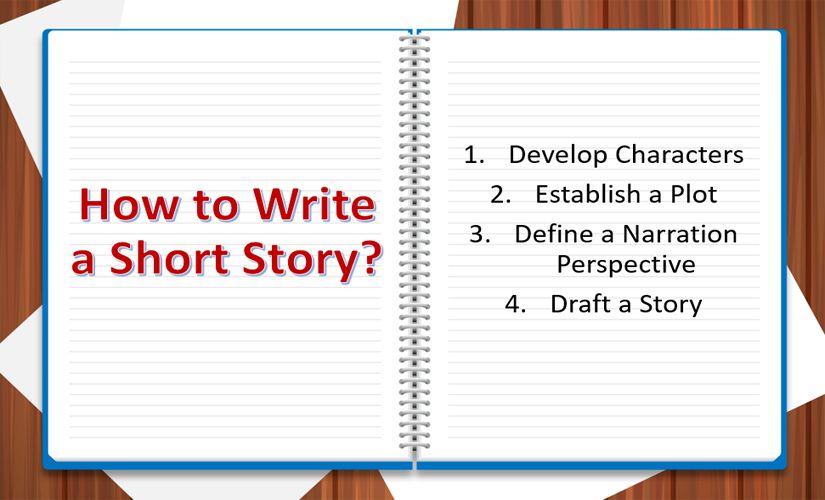Students at various levels of learning have to show their understanding of subjects and their theoretical frameworks. In most cases, they express their appreciative abilities through writing. Basically, instructors and examiners scrutinize an overall quality of a student’s research paper to gauge their level of understanding. A discussed background is an important piece that shows a particular thoughtfulness of a student in various areas of study. In turn, a conceptual theoretical framework clarifies a direct pathway of research and grounds and its connection to academic concepts.
General Aspects
A theoretical framework provides a broader set of ideas where a study belongs. Basically, it is a plan for research in different types of papers. In writing, this assumed background reflects a specific hypothesis of a given study. As such, a student relies on an existing theory in a field of investigation. Moreover, a scholar explores current knowledge and develops a plan to guide his or her study. In principle, a good conceptual background implies a chosen approach serves as a foundation of a research paper or a dissertation and ensures a scholar does not deviate from relevant concepts. Thus, a theoretical framework defines specific boundaries of analysis and its writing.
What Is a Theoretical Framework and Its Purpose
According to its definition, a theoretical framework is a specific foundational structure in academic research that provides a coherent set of concepts, theories, and assumptions to guide an entire study. Such a structure outlines a particular lens through which scholars view a specific problem, typical relationships among variables, and unique methods for data collection and analysis. For example, the main purpose of writing a theoretical framework is to provide a clear, coherent foundation that guides an entire analysis process, ensuring a particular study is grounded in established approaches and concepts (Bingham et al., 2024). By grounding a study in a defined context, scholars can anchor their work within an existing body of knowledge, facilitating a systematic exploration of research questions. Finally, a theoretical framework ensures an entire examination is methodologically sound, theoretically informed, and contextually relevant (Passey, 2020). In terms of pages and words, the length of a theoretical framework depends on academic levels, fields of study, and institution’s requirements, while general writing guidelines are:
High School
- Length: 1-2 pages
- Word Count: 250-500 words
College (Undergraduate)
- Length: 2-4 pages
- Word Count: 500-1,000 words
University (Bachelor’s Degree)
- Length: 3-5 pages
- Word Count: 750-1,250 words
Master’s Degree
- Length: 5-7 pages
- Word Count: 1,250-1,750 words
Ph.D. Program
- Length: 7-10 pages or more (depends on a complexity and depth of analysis)
- Word Count: 1,750-2,500 words or more

Types
| Type | Purpose |
|---|---|
| Conceptual | Focuses on key concepts and their relationships, often represented visually to illustrate connections. |
| Analytical | Provides tools and methods for data analysis, emphasizing how data will be interpreted and understood. |
| Descriptive | Describes a specific phenomenon in detail, often used in exploratory or qualitative analysis. |
| Explanatory | Explains why and how certain phenomena occur, often based on established theories. |
| Interpretive | Seeks to understand specific meanings and experiences of participants, which is common in qualitative analysis. |
| Predictive | Uses models to predict future outcomes or trends based on existing data and theories. |
| Critical | Analyzes power structures, inequalities, and societal issues, often with a focus on social justice. |
| Ethnographic | Provides an in-depth understanding of cultural practices and beliefs through immersive analysis methods. |
| Historical | Examines past events and trends to understand current phenomena and predict future outcomes. |
Format
| Introduction | Briefly introduce a specific research problem, purpose of a study, and an actual significance of a theoretical framework. |
| Literature Review | Summarize relevant theories, models, and key concepts from existing literature that relate to a particular study. |
| Key Theories/Concepts | Write about main theories and concepts that will be used to frame an entire examination, including definitions and origins. |
| Relationships Among Variables | Explain how key concepts and variables are related and how these relationships will be examined in an entire study. |
| Hypotheses/Research Questions | State hypotheses or research questions that emerge from a discussed method. |
| Rationale for Framework | Justify a particular selection of such a foundation and its relevance to a research problem. |
| Application to Study | Describe how this foundation will be applied to a research design, data collection, and analysis. |
| Conclusion | Summarize key points of an analysis and restate its importance to a whole study. |
| List of References | Cite all the sources used for writing and format citation entries in accordance with the rules of APA, MLA, Chicago/Turabian, Harvard, or other referencing styles. |
Note: Some sections can be added, deleted, or combined with each other, depending on instructions and scopes of analysis. In writing, the three main components of a theoretical framework are key concepts, relevant approaches, and defined relationships among variables. For example, to format a theoretical framework, people organize it by introducing a specific research problem, defining key concepts, summarizing relevant theories, explaining relationships among variables, and justifying its relevance to a particular study (Egbert & Sanden, 2020). Further on, a conceptual framework focuses on specific concepts and their interrelationships connected to a particular examination, while a theoretical framework is broader, encompassing established theories and models to provide a comprehensive foundation for a given study. Moreover, a literature review summarizes and evaluates existing knowledge on a specific topic, while a theoretical framework establishes some approaches and concepts that underpin and guide a whole study (Luft et al., 2022). In turn, a theoretical framework is often a part of a literature review, providing a theoretical basis and context for an entire examination. Finally, to start a theoretical framework, people begin by clearly defining a specific research problem and introducing key concepts and theories that will guide their studies.
Steps on How to Write a Theoretical Framework
- Identify a Research Problem: Clearly define a specific issue or problem your analysis aims to address.
- Review Relevant Literature: Conduct a thorough review of existing theories, ideas, models, concepts, and studies related to your topic.
- Select Key Concepts: Choose main concepts and variables that are central to writing your study.
- Define Key Terms: Provide clear definitions for each key concept and variable to ensure consistency and understanding.
- Explain Relationships: Describe how selected concepts and variables are related to each other within a particular context of your study.
- Develop Hypotheses or Research Questions: Formulate hypotheses or research questions based on direct relationships among key concepts.
- Choose a Theoretical Perspective: Select an overarching conceptual perspective that aligns with your research problem and objectives.
- Justify a Defined Approach: Explain why a chosen conceptual model is appropriate and relevant for writing your study.
- Apply a Theoretical Foundation: Describe how such a method will guide a unique research design, data collection method, and analysis.
- Summarize a Model: Provide a concise summary of a theoretical framework, highlighting its significance to your study.
Research Process
A theoretical framework grounds research on academic concepts. For instance, theories resonate with every aspect of an analysis process (Passey, 2020). To write a theoretical framework, people synthesize relevant theories and concepts from existing literature and knowledge, define key terms, explain their interrelationships, and justify their relevance to their research problems. In this case, a presented background guides a particular scope and nature of every aspect of writing a research paper and ensures all sections meet required standards. Basically, an adequate theoretical framework defines a specific problem, literature review, research method, presentation of ideas, and discussion of the results (Balboni, 2018). Hence, such a model refers to a defined potential of a covered theory in strengthening a study. As a result, a scholar has to consider interrelated principles and use them to control situations within a particular context of analysis inquiry. Therefore, such an approach ensures a study resonates with tested and validated theories that exist in the literature. In turn, some examples of sentence starters for beginning a theoretical framework are:
- A presented theoretical framework for this study is grounded in a theory of [specific approach], which posits that [brief explanation of a theory] and provides a basis for understanding [relevant research problem].
- Building on observed concepts established by [author or theorist], this examination explores how [specific concepts] interact to influence [aspect of a research problem].
- This examination adopts a conceptual perspective of [specific perspective], which emphasizes [key principles of a perspective] as a means to analyze [research problem].
- To address a research problem, this study utilizes a structure proposed by [author or model], which outlines [key components or relationships] crucial for understanding [area of analysis].
- A particular foundation of this method is based on principles of [specific approach or model], which suggests that [brief explanation of principles] and is particularly relevant for examining [research question].
- Guided by a theoretical approach of [author or theory], this study aims to explore [specific aspect of a research problem], focusing on [key concepts or relationships].
- Drawing from established approaches of [author or field], this examination seeks to understand [specific phenomenon] through a particular lens of [key concepts].
- In exploring a research question, this study employs a conceptual model of [specific model], which highlights [important aspects of a model] and their implications for [research area].
- This examination is informed by a famous work of [author or theorist], whose examination on [specific topic] provides valuable insights into [aspect of a research problem].
- Key concepts forming this educational model include [list of key concepts], which together offer a comprehensive lens for analyzing [research question or problem].
Concepts
Concepts considered by a student in a cultural anthropology study are a good case in point of a theoretical framework. For instance, a student has to explore theories in human-environment relations, cultural and historical ecology, and environmental determinism, among others (Bingham et al., 2024). In writing, the four areas of a theoretical framework are definitions of key concepts, relevant approaches, relationships among variables, and assumptions underlying an entire Analysis. Moreover, a theoretical framework of a literature review provides a structured approach to analyzing and synthesizing existing research and knowledge, guiding a particular identification of key concepts, relevant theories, and relationships among them (Brydges & Batt, 2023). As such, chosen theories must agree with a particular problem under investigation. Besides, writing about these approaches explains how people and their cultures relate to a whole environment. Thus, a presented case implies theoretical frameworks should explore models that relate to a specific problem under investigation.
Examples
| Discipline | Example | Description |
|---|---|---|
| Psychology | Cognitive Behavioral Theory | Explains how thoughts and beliefs influence behaviors and emotions. |
| Sociology | Social Constructivism | Examines how social phenomena are created through collective agreement and interactions. |
| Education | Constructivist Learning Theory | Focuses on how learners construct knowledge through experiences and interactions. |
| Business | Resource-Based View (RBV) | Analyzes how firms’ resources and capabilities lead to competitive advantage. |
| Healthcare | Health Belief Model | Predicts health behaviors by analyzing individuals’ beliefs about health conditions. |
| Economics | Game Theory | Studies strategic decision-making among individuals or organizations in competitive situations. |
| Political Science | Rational Choice Theory | Assumes that individuals make decisions by maximizing utility based on preferences. |
| Environmental Science | Ecological Systems Theory | Explores how environmental systems interact and impact organisms. |
| Communication | Uses and Gratifications Theory | Investigates why people use media and what they gain from it. |
| Anthropology | Cultural Relativism | Advocates for understanding cultural practices within their own context without bias. |
What to Include
| Element | Description |
|---|---|
| Definitions of Key Concepts | Clear definitions of main concepts and variables relevant to a current study. |
| Relevant Theories | Detailed descriptions of theories that support an entire examination and its writing. |
| Theoretical Models | Specific models that illustrate relationships between different concepts and variables. |
| Literature Support | Evidence and examples from existing literature that support chosen approaches and concepts. |
| Assumptions | Underlying assumptions of a conceptual model and their implications for a study. |
| Conceptual Relationships | Explanation of how different concepts and variables are related to each other. |
| Propositions | Specific propositions derived from a chosen model and its writing. |
| Historical Context | Background information on a particular development and evolution of relevant theories. |
| Theoretical Integration | How chosen approaches integrate with each other to provide a comprehensive understanding of a topic. |
| Practical Implications | How a defined model applies to real-world situations and practical applications. |
| Limitations of Theories | Acknowledgment of possible limitations or criticisms of chosen theories. |
| Framework Diagrams | Visual representations (e.g., diagrams, flowcharts) of a conceptual foundation. |
| Key Researchers | Identification of key scholars and their contributions to relevant approaches. |
| Predictive Power | Discussion on predictive capabilities of a discussed method. |
| Relevance to Analysis | How a chosen model specifically relates to writing a current research problem. |
Common Mistakes
- Lack of Clarity: Failing to clearly define key concepts and theories, leading to confusion.
- Insufficient Literature Review: Not conducting a thorough review of relevant literature, which can result in writing a weak foundation.
- Overly Broad Scope: Including too many theories or approaches, making a framework unfocused.
- Lack of Relevance: Choosing approaches or models that do not directly relate to a research problem.
- Ignoring Contradictory Theories: Failing to address or acknowledge theories that contradict a chosen model.
- Poor Organization: Presenting information in a disorganized manner, making it hard to follow a framework’s logic.
- Lack of Originality: Simply summarizing existing theories without showing how they apply specifically to a presented examination.
- Unclear Relationships: Not clearly explaining how key concepts and variables are related to each other while writing.
- Inconsistent Terminology: Using different terms for same concepts, leading to confusion and inconsistency.
- Lack of Justification: Failing to explain why a chosen theoretical framework is appropriate for a presented study.
Summing Up
In conclusion, theoretical frameworks clarify a particular pathway of a research paper, its outline, and its template. A scholar uses a standard background to determine and write about a specific scope of a study. In this case, a person identifies concepts relevant to guide a study. Moreover, such an approach grounds a study area to related academic ideas. Hence, a practical, theoretical framework ensures an investigation is not vague by including irrelevant thoughts. Excellent examples can be theories in human-environment relations, cultural and historical ecology, and environmental determinism when writing a research paper in traditional anthropology. Thus, a well-defined model helps any scholar to explore theories that resonate with a topic under investigation.
References
Balboni, P. E. (2018). A theoretical framework for language education and teaching. Cambridge Scholars Publishing.
Bingham, A. J., Mitchell, R., & Carter, D. S. (2024). A practical guide to theoretical frameworks for social science research. Routledge.
Brydges, M., & Batt, A. M. (2023). Untangling the web: The need for theory, theoretical frameworks, and conceptual frameworks in paramedic research. Paramedicine, 20(4), 89–93. https://doi.org/10.1177/27536386231177348
Egbert, J., & Sanden, S. (2020). Foundations of education research: Understanding theoretical components. Routledge.
Luft, J. A., Jeong, S., Idsardi, R., & Gardner, G. (2022). Literature reviews, theoretical frameworks, and conceptual frameworks: An introduction for new biology education researchers. CBE—Life Sciences Education, 21(3), 1–10. https://doi.org/10.1187/cbe.21-05-0134
Passey, D. (2020). Theories, theoretical and conceptual frameworks, models and constructs: Limiting research outcomes through misconceptions and misunderstandings. Studies in Technology Enhanced Learning, 1–35. https://doi.org/10.21428/8c225f6e.56810a1a


